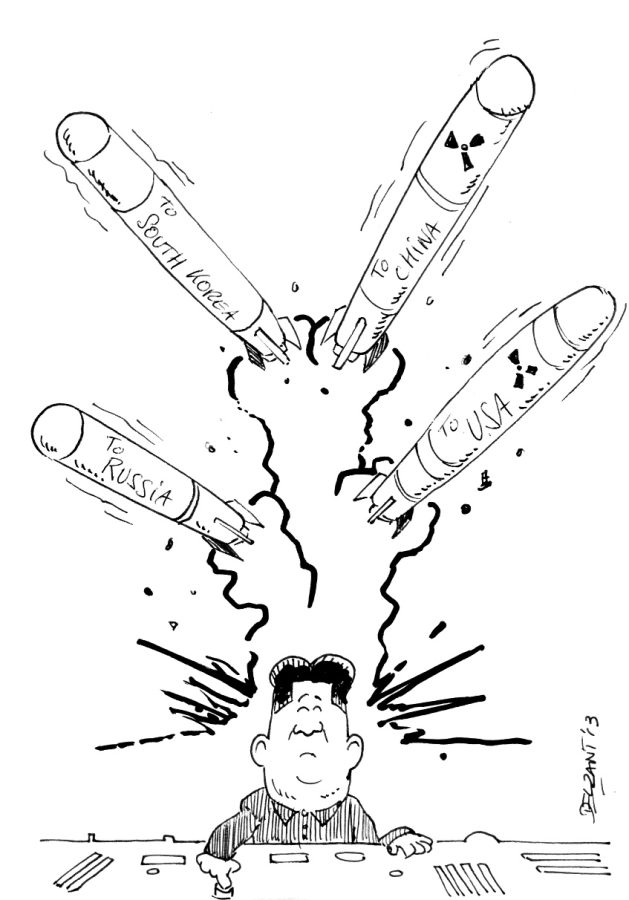When North Korean dictator Kim-Jong Il passed away in late 2011, many looked forward to a turning point in U.S and worldwide relations with this isolated country.
The very existence of North Korea is an unwelcome political anachronism that has been problematic since its inception. Its former Communist patron China has liberalized its economy and thrived in world trade, and neighboring South Korea has been among the most prosperous and innovative countries in the world.
North and South Korea have a common history, ethnicity, and distinct geographic location. Their division is the awkward result of a proxy war ended with indefinite results, and the majority of South Koreans (and probably North Koreans, although popular opinion in North Korea is not easily ascertained) express a desire to reunite the two countries.
Given this, the death of warmongering leader Kim Jong-Il caused many to speculate that a reuniting of North and South was imminent. By many accounts Kim Jong-Un, youngest son of Kim Jong-Il and heir to the dictatorship, was more forward-thinking than his father and may have a desire to end the immense suffering of his subjects by ending the absurd isolation of his country.
But, despite Dennis Rodman’s best efforts, the liberalization of North Korea has not occurred. Instead, Kim Jong-Un has brandished nuclear weaponry and aggressive speeches in the same way as his father. The North Korean policy of Songun, roughly meaning “military first,” has progressed unhindered, and the North Korean populace continues to languish in abject poverty as a result of its backward administration.
In recent weeks, an escalated series of threats from Pyongyang has raised eyebrows around the world, and as Jong-Un publicly contemplates a strike of South Korea or the U.S, observers must wonder if the time has come to dispose of the pugnacious and tyrannical North Korean regime.
The ironically named “Democratic People’s Republic of Korea” is in obvious violation of a slew of international laws and conventions. They oppress their own people with authoritarian communist policies, forcing widespread starvation in an age of capitalism and prosperity and constantly raising the specter of nuclear war in an age of détente.
It is a rogue nation unilaterally governed by a dangerous regime, and yet they have been allowed to develop nuclear weapons and continue a policy of aggression with impunity. No rational observer would contend that the North Korean people are better off under the current dictatorship than they would be living in South Korea, and the horror stories recounted by North Korean refugees confirm this.
Unfortunately, the current sentiment is one of isolation and dovishness, making any sort of regime change in North Korea highly unlikely. A mass democratic revolution growing organically among the North Korean populace is essentially impossible, considering the destitution of the people and the heavy military presence means any sort of popular uprising would be ill fated and short lived.
The best hope for the North Korean people would be a coup sponsored by an outside country, and the subsequent installation of a regime that would acquiesce to a political reunification with South Korea. Some high-ranking generals in North Korea, whose military is the fourth-largest standing army in the world, certainly recognize the deplorable situation of their countrymen and the need for change.
A U.S. correspondence with a small group of generals could lead to a covert movement with American-supplied arms that overthrows the insane and unstable current regime and finally brings North Korea out from the grip of Cold War-style politics.
The fact that North Korea is nominally backed by China, a growing superpower, makes this notion more complicated, but China has seen its own wealth exponentially multiplied by opening its economy to the market and could abide by a new regime if it retained good relations.
Is there any chance of all this happening? Not in the foreseeable future. American foreign policy post-Iraq has been vacillating, and the threat of the American military has diminished in the eyes of many potential enemies, including North Korea. By refusing to entertain the possibility of American intervention in North Korea, we not only allow a despotic regime to deny freedom to its civilians, but we allow an unstable regime to flaunt nuclear capabilities with the apparent intention of starting a war.
A time may come in the near future where America can minimize damage with timely military actions. However, the isolationist/dovish sentiment exemplified by the two men most prominent in such relations, Defense Secretary Chuck Hagel and Secretary of State John Kerry, respectively, means that we will opt away from military action even when the situation requires it. Our fecklessness as a superpower not only disservices the people of repressed nations, but makes the world less safe as a whole.

